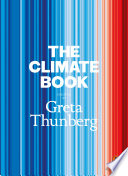

The book begins with a comprehensive overview of climate change, detailing its causes, impacts, and the science behind it. It explains the greenhouse effect, the role of carbon dioxide and other greenhouse gases, and how human activities such as burning fossil fuels and deforestation have accelerated climate change. The authors emphasize the urgency of understanding these concepts to grasp the dire implications for our planet and future generations.
Continue readingThe Climate Book highlights the intricate relationships between various ecosystems and how climate change affects biodiversity. It discusses the importance of preserving natural habitats and the role of species in maintaining ecological balance. The book illustrates how the loss of biodiversity can lead to ecosystem collapse, which in turn exacerbates climate change, creating a vicious cycle that threatens life on Earth.
Continue readingA significant theme in the book is the intersection of climate change and social justice. It argues that marginalized communities are often the most affected by climate change, despite contributing the least to the problem. The authors advocate for equitable solutions that address both environmental and social issues, emphasizing the need for inclusive policies that empower vulnerable populations and ensure their voices are heard in climate discussions.
Continue readingThe book explores various technological advancements that can help mitigate climate change. It covers renewable energy sources, carbon capture technologies, and sustainable agriculture practices. The authors stress the importance of innovation in solving climate-related challenges and call for increased investment in research and development to accelerate the transition to a sustainable future.
Continue readingThe Climate Book addresses the critical role of government policies and international agreements in combating climate change. It discusses frameworks like the Paris Agreement and the need for countries to commit to ambitious targets to reduce emissions. The authors argue that effective governance is essential for implementing climate action plans and ensuring accountability among nations.
Continue readingThe book emphasizes that while systemic change is necessary, individual actions also play a crucial role in addressing climate change. It encourages readers to adopt sustainable practices in their daily lives, such as reducing waste, conserving energy, and supporting eco-friendly businesses. The authors highlight the power of collective action, urging communities to come together to advocate for change and hold leaders accountable.
Continue readingThe final key idea revolves around the future implications of climate change if current trends continue. The book paints a stark picture of potential scenarios, including rising sea levels, extreme weather events, and food insecurity. However, it also offers a glimmer of hope by discussing the possibility of a sustainable future through concerted efforts and global cooperation, inspiring readers to envision and work towards a better world.
Continue readingThe reading time for The Climate Book depends on the reader's pace. However, this concise book summary covers the 7 key ideas from The Climate Book, allowing you to quickly understand the main concepts, insights, and practical applications in around 22 min.
The Climate Book is definitely worth reading. The book covers essential topics including Understanding Climate Change, The Interconnectedness of Ecosystems, Social Justice and Climate Change, providing practical insights and actionable advice. Whether you read the full book or our concise summary, The Climate Book delivers valuable knowledge that can help you improve your understanding and apply these concepts in your personal or professional life.
The Climate Book was written by Greta Thunberg.
If you enjoyed The Climate Book by Greta Thunberg and want to explore similar topics or deepen your understanding, we highly recommend these related book summaries:
These books cover related themes, complementary concepts, and will help you build upon the knowledge gained from The Climate Book. Each of these summaries provides concise insights that can further enhance your understanding and practical application of the ideas presented in The Climate Book.